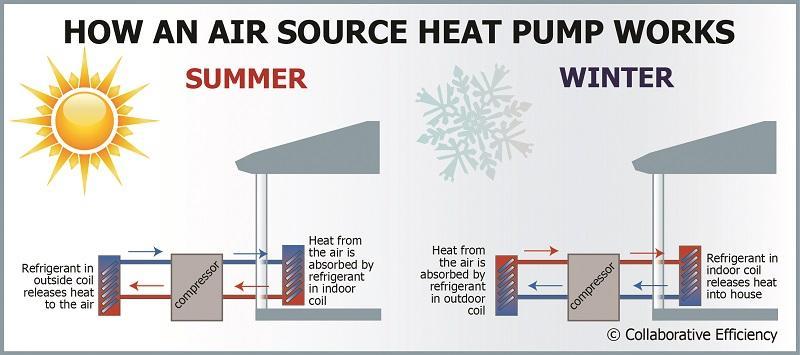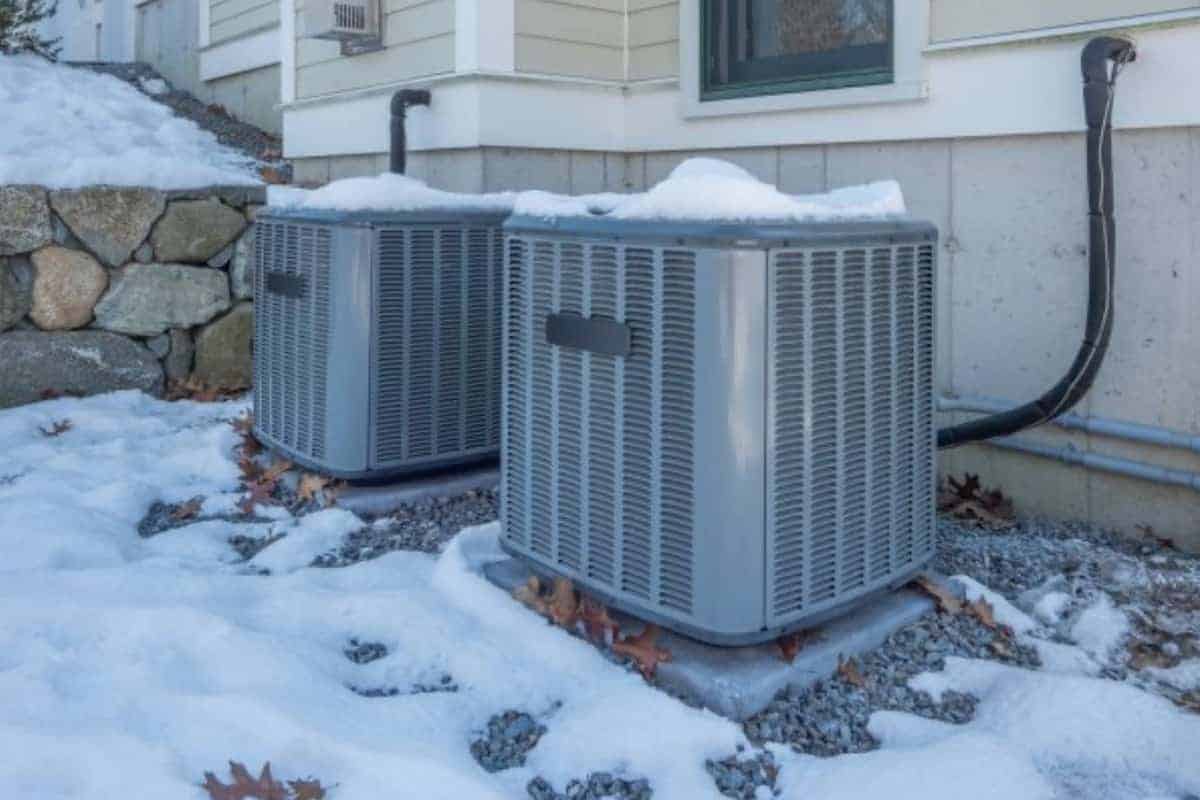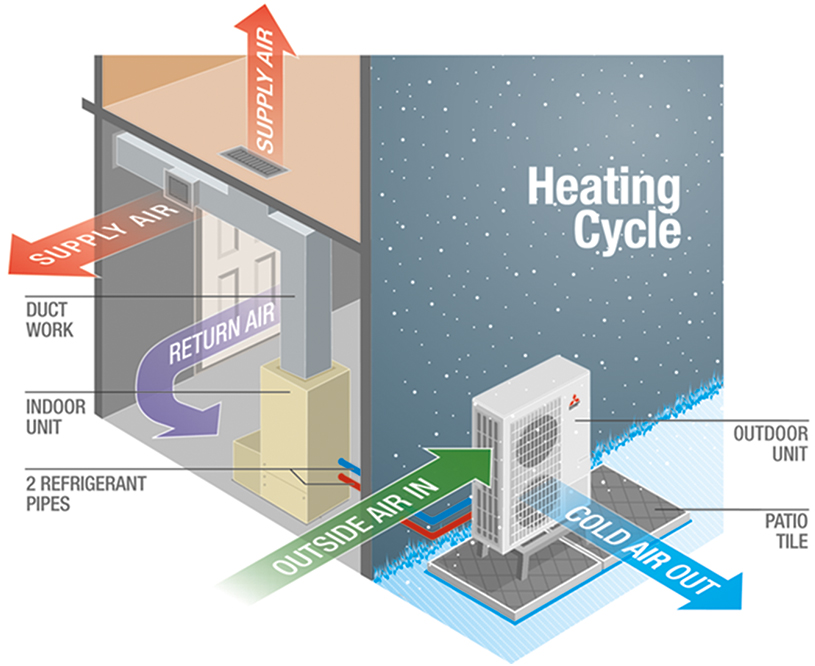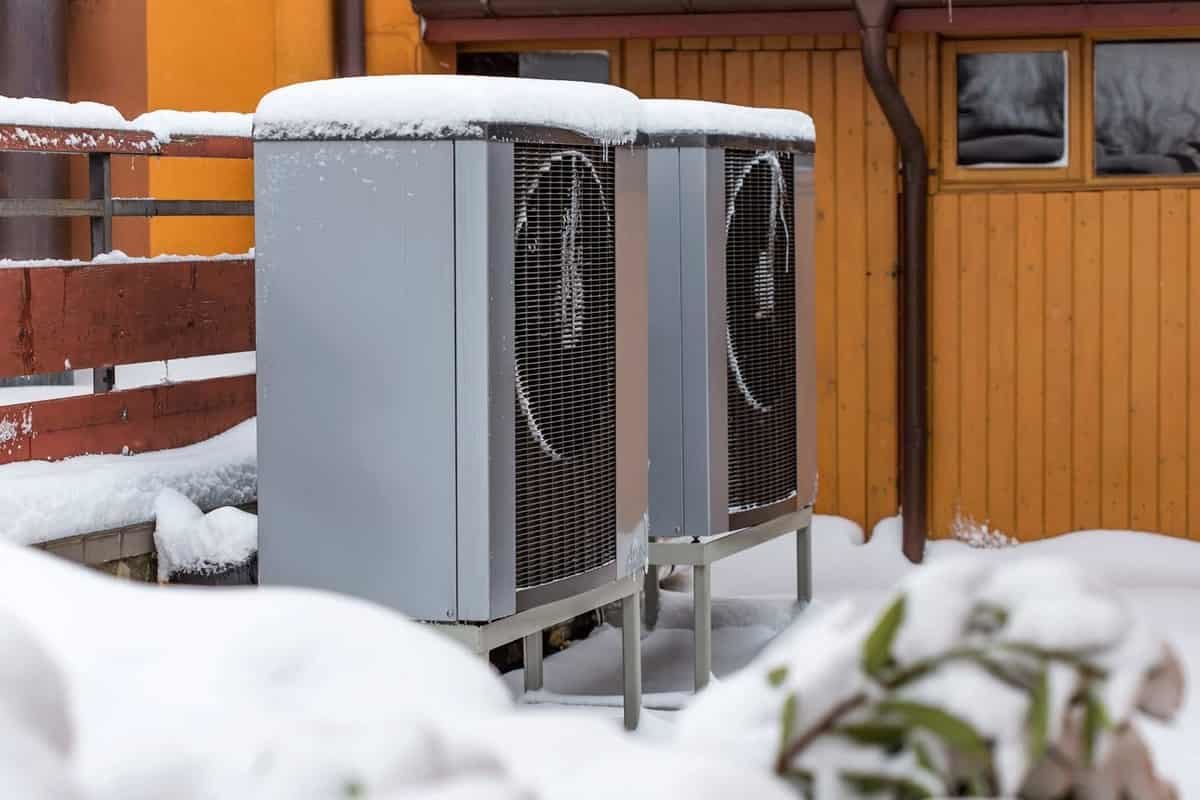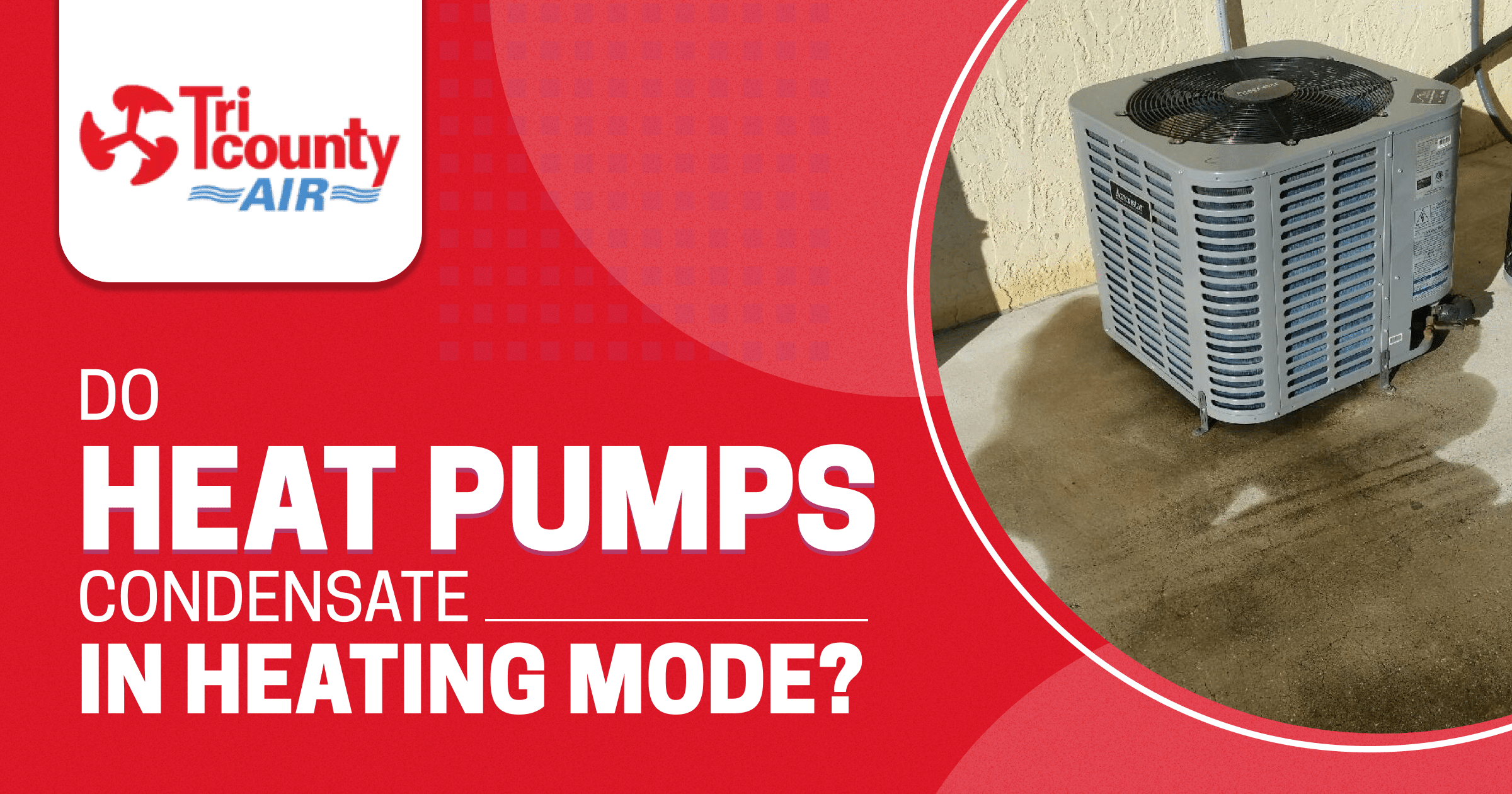Do Heat Pumps Condensate In Winter
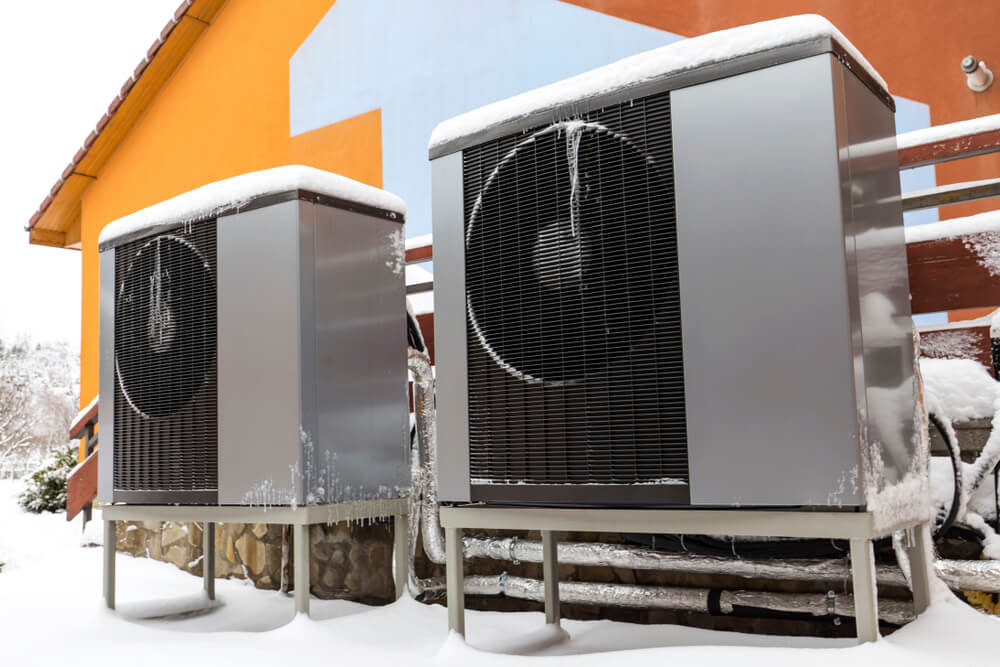
One common question homeowners have about heat pumps, especially as winter approaches, is whether they produce condensation like air conditioners do in the summer. The answer, surprisingly, is yes. While the process is slightly different, and the reasons for condensation formation vary between summer and winter operation, condensation is a normal part of heat pump function even during the coldest months. Let's delve into why, what it means, and when you should be concerned.
Why Heat Pumps Condensate in Winter
To understand winter condensation, it's crucial to grasp the basics of how a heat pump works. Unlike traditional furnaces that generate heat, heat pumps move heat from one place to another. In the winter, they extract heat from the outside air (yes, even cold air contains heat) and transfer it inside. This process involves a refrigerant that cycles between liquid and gaseous states, absorbing and releasing heat. Condensation forms because of this cycle.
The Science Behind Winter Condensation
Here’s a simplified explanation:
- Refrigerant Cycle: The refrigerant in the outdoor unit absorbs heat from the outside air. This process causes the refrigerant to evaporate into a gas.
- Compression: The gaseous refrigerant is compressed, which increases its temperature.
- Heat Transfer: This hot, high-pressure refrigerant is then circulated to the indoor unit (air handler), where it releases its heat into your home. As it releases heat, the refrigerant condenses back into a liquid.
- Expansion: The liquid refrigerant then flows through an expansion valve, which lowers its pressure and temperature, and the cycle repeats.
During this process, the outdoor coil can become quite cold, especially when the outside air temperature is low. When relatively warmer, moist air comes into contact with this cold coil, condensation forms. This condensation can then freeze, leading to frost or ice buildup on the outdoor unit.
Defrost Cycle: Dealing with Ice Buildup
The formation of ice on the outdoor coil can reduce the efficiency of the heat pump. To combat this, heat pumps have a defrost cycle. During this cycle, the heat pump temporarily reverses its operation, essentially running in air conditioning mode to heat the outdoor coil and melt the ice. You'll often see steam rising from the unit during this time, which is simply the melting ice. Water runoff is normal and expected.
Many modern heat pumps have sophisticated defrost controls that monitor coil temperature and outdoor conditions to initiate the defrost cycle only when necessary, minimizing disruption to heating and maximizing efficiency.
When is Condensation a Problem?
While some condensation and ice formation are normal, excessive ice buildup or unusual water accumulation could indicate a problem. Here are some things to watch out for:
- Excessive Ice: A thick layer of ice that doesn't melt during the defrost cycle could mean a malfunctioning defrost system. This might be due to a faulty sensor, a broken defrost timer, or a refrigerant leak.
- Constant Running: If your heat pump seems to be constantly running in defrost mode, it’s a sign of a problem.
- Water Damage: Pooling water around the indoor unit or signs of water damage could indicate a leak in the refrigerant lines or the condensate drain.
- Reduced Heating: A significant drop in heating performance could be related to ice buildup or other issues caused by excessive condensation.
If you notice any of these problems, it's best to call a qualified HVAC technician for diagnosis and repair.
Heat Pump Brands and Models: A Quick Comparison
When choosing a heat pump, consider factors like efficiency (SEER, HSPF, AFUE), features, and warranty. Here's a brief look at some popular brands and models:
Carrier
Carrier is a well-known brand with a reputation for quality and innovation. Their high-end models, like the Infinity series, offer exceptional efficiency and features such as variable-speed compressors and smart controls.
- Carrier Infinity 26 (24VNA6): Up to 20.5 SEER, 13 HSPF. Offers Greenspeed intelligence for optimal performance.
- Warranty: 10-year parts limited warranty upon registration.
Trane
Trane is another reputable brand known for its durability and reliability. Their XV series heat pumps are highly efficient and offer advanced features like TruComfort variable speed technology.
- Trane XV20i: Up to 20 SEER, 13 HSPF. Variable speed compressor for precise temperature control.
- Warranty: 10-year registered limited warranty on compressor, outdoor coil, and internal functional parts.
Lennox
Lennox offers a range of heat pumps, including high-efficiency models with innovative features like the SunSource solar-ready option.
- Lennox SL28XCV: Up to 28 SEER, 10 HSPF. Variable capacity operation for ultimate comfort and energy savings.
- Warranty: 10-year limited warranty on covered components.
Mitsubishi Electric
Mitsubishi Electric is known for its ductless mini-split heat pump systems, which are ideal for targeted heating and cooling. Their Hyper-Heating INVERTER (H2i) technology provides excellent heating performance in cold climates.
- Mitsubishi Electric MSZ-FH12NA: Up to 26 SEER, 12 HSPF. H2i technology for reliable heating down to -13°F.
- Warranty: 5-year parts limited warranty, 7-year compressor limited warranty.
Note: SEER (Seasonal Energy Efficiency Ratio) measures cooling efficiency, HSPF (Heating Seasonal Performance Factor) measures heating efficiency, and AFUE (Annual Fuel Utilization Efficiency) is primarily used for furnaces.
Heat Pump Maintenance Tips
Proper maintenance is crucial for keeping your heat pump running efficiently and preventing problems. Here are some essential maintenance tips:
- Regular Filter Changes: Change your air filters every 1-3 months, depending on the type of filter and the amount of dust and debris in your home. A clogged filter can restrict airflow and reduce efficiency.
- Coil Cleaning: Keep the outdoor coil clean and free of debris. Use a garden hose to gently rinse the coil, removing dirt, leaves, and grass clippings.
- Clear Debris: Ensure that there is no vegetation, snow, or other obstructions around the outdoor unit. Allow for adequate airflow.
- Professional Inspection: Schedule an annual inspection and tune-up with a qualified HVAC technician. They can check the refrigerant levels, inspect the electrical components, and ensure that the system is operating properly.
Understanding Warranties
Heat pump warranties typically cover parts and, in some cases, labor. The length of the warranty can vary depending on the brand and model. Be sure to register your heat pump with the manufacturer to activate the warranty. Read the warranty carefully to understand what is covered and what is not. Proper installation by a licensed HVAC contractor is often required to validate the warranty.
The Bottom Line
Condensation on your heat pump in winter is a normal part of its operation. The defrost cycle helps to remove ice buildup and maintain efficiency. By understanding how a heat pump works and performing regular maintenance, you can ensure that your system provides reliable heating and cooling for years to come. If you notice any unusual signs, such as excessive ice buildup or reduced heating performance, contact a qualified HVAC technician for assistance.
Investing in a high-efficiency heat pump from a reputable brand like Carrier, Trane, Lennox, or Mitsubishi Electric can provide significant energy savings and enhanced comfort. Consider your specific needs and budget when choosing a model, and be sure to prioritize proper installation and maintenance.

